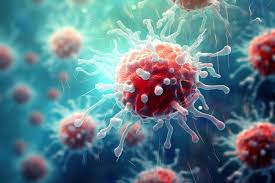
Fructose: A Potential Ally of Cancer Cells, Study Warns
Fructose, a sugar commonly found in American diets due to the widespread use of high-fructose corn syrup, may act as a "rocket fuel" for cancer cells, according to new research. The study, published in the journal Nature on Dec. 4, highlights the unique way fructose is metabolized in the body and its potential role in fueling tumor growth.
Gary Patti, senior author of the study and professor of genetics and medicine at Washington University in St. Louis, explained how deeply entrenched fructose has become in modern diets. “Almost everything has it,” Patti said in a university news release. “It’s not just candy and cake, but also foods such as pasta sauce, salad dressing, and ketchup. Unless you actively seek to avoid it, it’s probably part of your diet.”
The study revealed that unlike glucose, which is processed throughout the body, fructose is metabolized exclusively in the small intestine and liver. This unique metabolic pathway results in the production of lipids called lysophosphatidylcholines (LPCs) in the liver, which cancer cells readily consume to support their growth.
Ronald Fowle-Grider, the study’s lead author and a postdoctoral researcher in Patti’s lab, initially expected tumor cells to process fructose similarly to glucose by using it directly for building cellular components. However, molecular analysis showed that tumor cells lack the biochemical machinery to metabolize fructose efficiently. Instead, they thrive on the LPCs derived from fructose metabolism in the liver.
"LPCs are unique," Patti noted. "They might provide the most effective and efficient way to support tumor growth."
In experiments involving tumor-bearing animals, the researchers observed that diets high in fructose significantly accelerated tumor growth, in some cases doubling the rate of progression.
The findings raise questions about the relationship between the rise of high-fructose corn syrup consumption and increasing cancer rates among people under 50. While this study did not directly establish a causal link, it opens the door for future research to explore how dietary fructose impacts cancer development.
“For those diagnosed with cancer, avoiding fructose may be a prudent strategy,” Patti said, though he acknowledged the challenge due to its ubiquity in processed foods.
Patti emphasized the broader implications of the research: “The idea that you can tackle cancer with diet is intriguing. What you put in your body can be consumed by healthy tissue and then converted into something else that tumors use.”
The study, funded by the National Institutes of Health, underscores the potential for dietary modifications as a complementary approach to cancer treatment, but also highlights the complexity of human metabolism in addressing the disease.